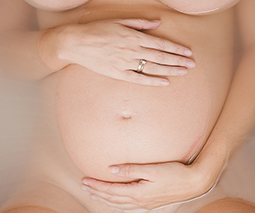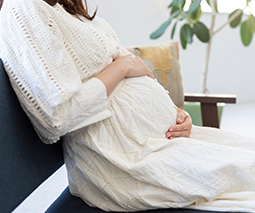New pregnancy care guidelines say goodbye to Vitamin D testing

The new clinical guidelines for pregnancy care have been released today and one thing that’s been removed is testing for Vitamin D levels. Once considered important to stay on top of, experts are now ditching Vitamin D in favour of other prenatal health checks and recommendations.
New guidelines published
Like many other areas of health, new research and studies are being conducted all the time around pregnancy care so it’s no surprise that the medical guidelines need to be updated regularly. Published today in the Medical Journal of Australia are the latest expert prenatal care recommendations for any health practitioners contributing to the care of expecting mothers (such as midwives, obstetricians, GPs and nurses).
Key changes to practice include the following:
- Routine testing for hepatitis C at the first antenatal visit.
- No routine testing for Vitamin D status in the absence of a specific indication.
- Discuss weight change, diet and physical activity with all pregnant women.
- Offer pregnant women the opportunity to be weighed at every antenatal visit and encourage women to self-monitor weight gain.
Aiming for better health
According to one of the lead authors, Professor Caroline Homer, Co-Program Director (Maternal and Child Health) at the Burnet Institute in Melbourne, and Visiting Professor of Midwifery at the University of Technology Sydney, the updated guidelines will ensure that expecting mothers are treated more effectively for optimum health and that any issues are made aware of early.
“The guidelines will enable pregnant women diagnosed with hepatitis C to be identified and thus avoid invasive procedures that increase the risk of mother-to-baby transmission,” she wrote. “Women can be treated postpartum, reducing the risk of liver disease and removing the risk of perinatal infection for subsequent pregnancies.”

Ditching the D
When it comes to Vitamin D though, while it is important for pregnant women to maintain good levels (which they can do via a bit of sunlight and what’s included in prenatal supplements), there just isn’t enough evidence to justify the practice of testing anymore.
“Routine testing of all pregnant women for vitamin D status and subsequent vitamin D supplementation is not supported by evidence and should cease as the benefits and harms of vitamin D supplementation remain unclear,” said Prof. Homer.
Read more about pregnancy care:
- 16 vitamin B3-rich foods to keep you and baby healthy in pregnancy
- Keep calm and bump on? The truth about stress and pregnancy
- 5 things to avoid when you’re pregnant
Weight, diet and exercise
On the other hand, what the authors are recommending is more attention to the expecting mother’s diet, physical exercise and weight.
“The recommendation for health professionals to provide advice to pregnant women about weight, diet and physical activity, and the opportunity to be weighed will help women to make changes leading to better health outcomes for themselves and their babies,” said Prof. Homer and colleagues.
Taking on the advice
However, as these are guidelines only, there is no guarantee that antenatal health practitioners will actually carry out the guidelines with their patients.
“The next challenge is to facilitate the uptake of the guidelines and their incorporation into routine care so that the women of Australia receive the highest possible quality of maternity care,” said Prof. Homer, however she is optimistic about long-term results.
“We trust that the guidelines will contribute to greater consistency in pregnancy care and improve the experience and outcomes of pregnancy care for women and their families.”
While not intended as a consumer resource, the full new guidelines are available publicly and can be viewed here for anyone wishing to know more about health during or post pregnancy.









